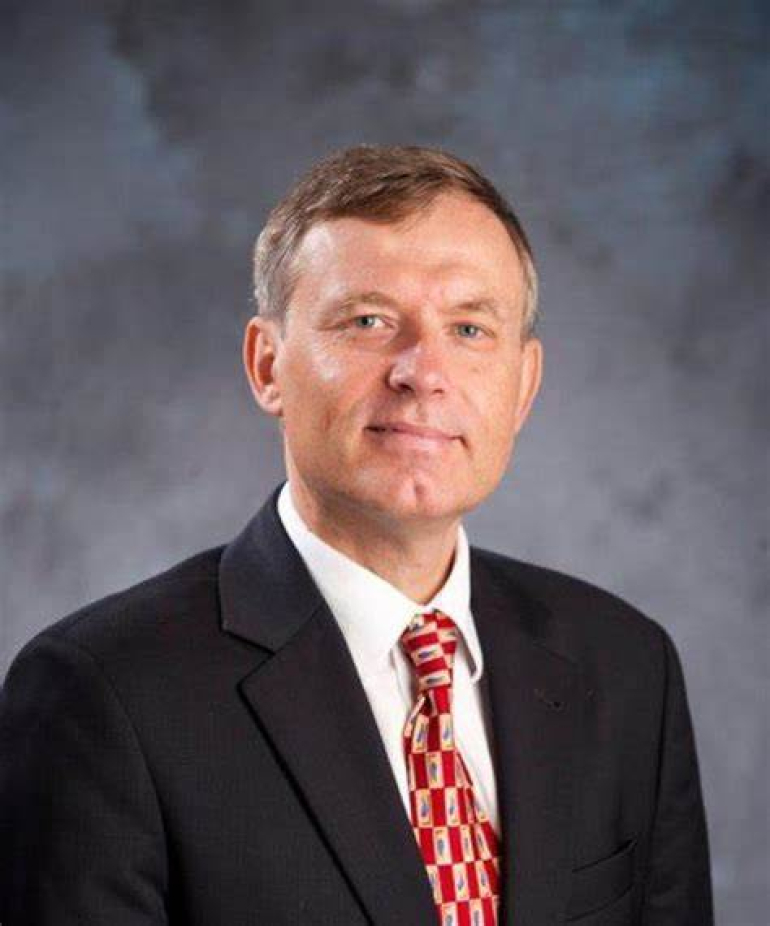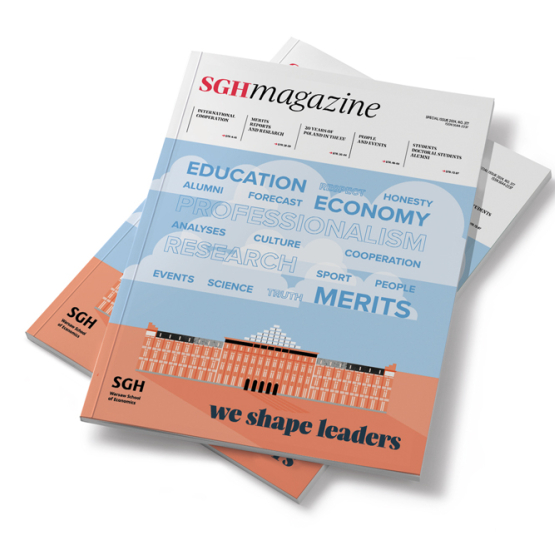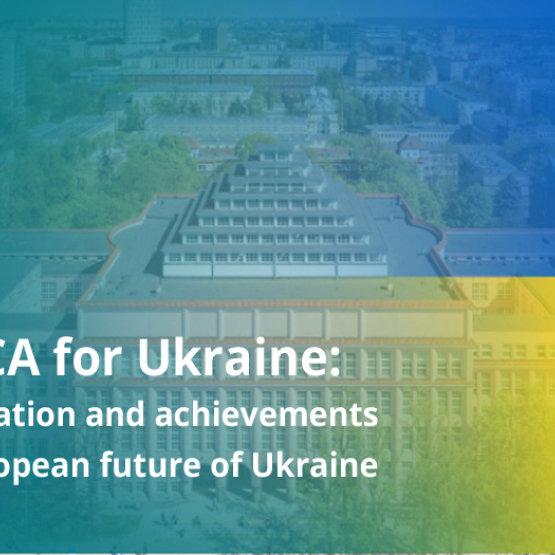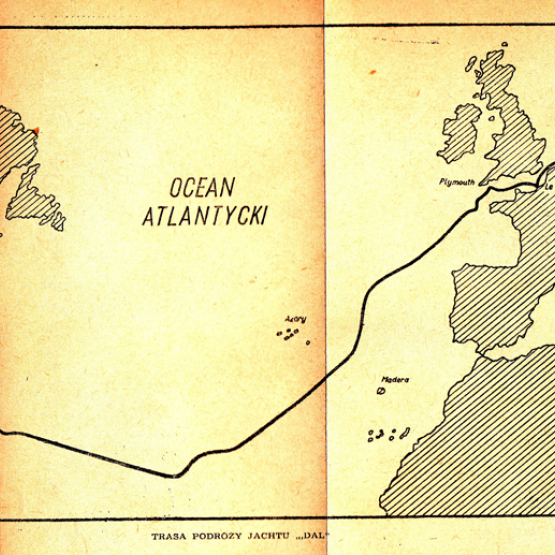
Justyna Kozera talks to SGH graduate Krzysztof Błędowski
Internships, so popular among the current students of SGH, had a somewhat different form when you studied here, and yet, they provided you with valuable experience for your professional path. Please tell us more about them.
I arranged them on my own, usually as a physical worker (mainly in Germany), because I really tried to polish my German. So, I went to Dresden and then to Berlin and Meinz.
When in Meinz, I took an internship with a rather large bank, Landesbank Rheinland-Pfalz, one of the land banks as they were then called. This experience gave me much to think about when it came to managing a very big institution. In 1980, I got an offer from AIESEC in the USA, in a large private company distributing maintenance goods. I worked in practically every position across all possible departments. I had to deal with small challenges, which was a perfect opportunity to develop quick decision-making skills.
I think modern students and graduates have it incomparably better when it comes to internships, and they should squeeze the last drop out of it. So, I encourage my son to take on as many internships of this type as he can as it could give him more insight into his potential future role in the business world.
Are internships popular among students in the US? I suggest answering this in the form of a recording of our conversation. ‘Listen to KB talking about what internships look like in the USA.’ ‘OK, good.’
We think there is a large difference compared to Poland. There are some types of studies, such as technical, engineering or IT studies, in during which students have an opportunity to work to a limited extent, and sometimes they make use of it. I know of one university where part of the education is practical work in a given company, but that is an exception.
The established norm in American culture is to hire students for the summer. In practical terms, every student should make sure to get such experience because any employer will pay attention to what a potential employee did during holiday breaks. That need not be ambitious work; simple office work, not necessarily linked to the future career, will suffice. Few students work during the academic year; those are exceptions. That is small-scale employment, such as a quarter of full-time equivalent, working at Starbucks or in a canteen, or running food deliveries in town. During the main mid-term break, however, the custom is to look for more career-focused work so as to gain specific experience.
You went to the US for an internship in 1980 and have remained there till the present day. How did that come to be?
Toward the end of 1981, when I was nearing the completion of that internship, martial law was instituted in Poland. Many of my friends and acquaintances tried to dissuade me from returning, as there were fears of the situation escalating into an armed conflict. So, I stayed and began to prepare for studies, working for several years in the aforementioned private industrial company. I moved from Chicago to Boston, and after graduating I was offered employment, but communism in Eastern Europe fell not long after and new opportunities arose in my homeland. I immediately began to look for opportunities to come back to or establish business ties with Poland. And the opportunity came when the CEO of Poland’s first investment fund, Pioneer, was looking for a head economic advisor and found me by recommendation from an acquaintance. After long talks, we reached an understanding, and I moved to Poland just before the end of 1993. I stayed here for almost 10 years, but when there was an opening with the International Monetary Fund in the US, I took it. Later, I received another proposal, and for 14 years now I have been working for a non-profit company operating in the finance and industrial sectors.
The company in question is Manufacturers Alliance, founded in 1933. For many years, it was more of a research institute, with professors and scientists sharing their knowledge about the labour market and human-resource capital with CEOs of industrial companies. In the sixties of the last century, the realization was made that the then-existing knowledge capital could be used to enrich the lower rungs of management. From that emerged an educational programme we continue to administer and expand.
During one of the meetings of the SGH Foreign Trade Corporation, you said that American managers’ high quality of work came in part from how they seized any opportunity for continued professional development.
That is typical of American culture — education does not end with graduation from studies. One continues to face one challenge after another, for example, because technology and the level of management evolve or simply because one has changed jobs. Thus, continued education is a necessity. The belief is that employers appreciate it. Our company works in this field. This has been going very well for almost 80 years now. We have isolated 22 functions of a typical production company, for which we develop individual workshops; for example, within finance alone, separate for Treasury (finance director), separate for the finance boss (CFO), the tax boss, the M&A boss. For production areas, those are, for example, quality control, engineering process, production process, logistics, and so on. For our workshops, we round up speakers and representatives of higher management, who share best practices. Companies subscribe memberships and formally support their employees, and we train them in selected fields.
You have worked in banking and in industry, but this ‘accompanying line’ has consisted in tasks strictly linked to economy.
I think this is a somewhat exceptional path in my case, where the study profile has been a good fit for the work profile. Let’s be clear, it isn’t always this way. Perhaps I was lucky, or perhaps I was able to find employment in which I could use my knowledge from university. But there is one good piece of news to share — the knowledge the average student of economics at SGH is about to get is highly valued. Many economists become successful in accounting and finance, provided they get some additional training in this area. People with knowledge of the economy are highly valued for strategic positions that don’t necessarily have to involve economic strategy; they can involve the company’s development strategy. There, too, is a need to calculate the profitability of operations and a need for far-reaching foresight and uncertainty management. We learn all this as economists. Thus, after graduating in economics, one can focus on certain highly specific and intensely used functions in business.
The last thing I am going to mention here is start-ups. Here, studying economics simply provides the ability to think rationally — about benefits, profit, damage and loss, which is what inventiveness and innovativeness are based on, among other things. SGH students are, in my view, very well prepared to find a good, satisfying place for themselves in professional life, given continued education and adaptation to the market.
We predict, we calculate, we model…, but how to do so, how to apply the knowledge in such times as we have now, of one big uncertainty?
That is a difficult question. To borrow the words of a Nobel winner, the best forecasts (though not all) come true if we forecast the past. As regards the future, it seems to me that we can’t predict it with any high degree of accuracy or precision. The direction and size of the change are what is the most important to forecast. Tasks and challenges faced by future employees, including SGH students, will feature the need to deal with uncertainty. But I wouldn’t go as far as to say that some extraordinary skill of making accurate predictions of the future is necessary. If that were so, those who can do it would be multibillionaires. Jeff Bezos became one because he kept trying; he lost and he made a profit, but he never stopped trying. Being guided by instinct is more important; to go forward and not rely on a zero-one method. This current uncertainty will probably ‘derail’ such types of forecasts. Predictions are necessary, but I would not fetishize this into something that every student should master and regard as the sole key to success. Instead, I would place far more emphasis on broad knowledge, readiness for constant learning, and making contacts during studies at university.
What do you remember most from your university time? I suggest recording this one too.
I’ll leave the academic part aside because I would have many a fantastic tale to spin — with this professor or that one, or classes, or exams… The thing I probably benefited the most from was activities in all sorts of societies focused on different subject areas. Thanks to them, I could take part in an international student conference and present a paper of my own already as a first-year student. Apart from the mandatory classes, exams and grades, I could pursue a greater depth of knowledge through those societies. I wrote papers, carried out studies — something sucked me in, and something of that has sunk in. I like to work to solve problems, and I like continued education. In other words, perhaps that was the key to my success in life, or perhaps a cool adventure converted into a pleasant memory.
The next thing I remember best is all the student lifestyle — a mass of people to meet, interact with and learn from. We worked in groups back then, and in those groups, we formed strong attachments. Such kind of friendships and close contacts (I can see this on the example of my wife, who stays in close touch with her university classmates) remain forever, and that too is a precious thing to have. I wonder what this looks like at SGH today, perhaps something may have changed.
In summary, in one sentence, SGH is knowledge, learning and contacts — your passport to success.
Krzysztof Błędowski — Graduate of SGH’s master’s studies in Foreign Trade. With his master’s degree (magister) in economics, he went to complete an internship in the USA, where he remained due to the political situation in Poland at the time. In 1987, he received his master’s degree in economics from Boston College and in 1989 — his doctorate in economics from the Polish University in London.
Currently, he is Senior Council Director and Economist in Manufacturers Alliance, Arlington, Virginia, which trains managers for large industrial concerns. He joined MA in 2006, having previously served as the senior economist with International Monetary Fund, head economist-strategist with Commerzbank Central Europe/Wood & Co. and head economic advisor to Pierwszy Polski Fundusz Powierniczy Pioneer.



